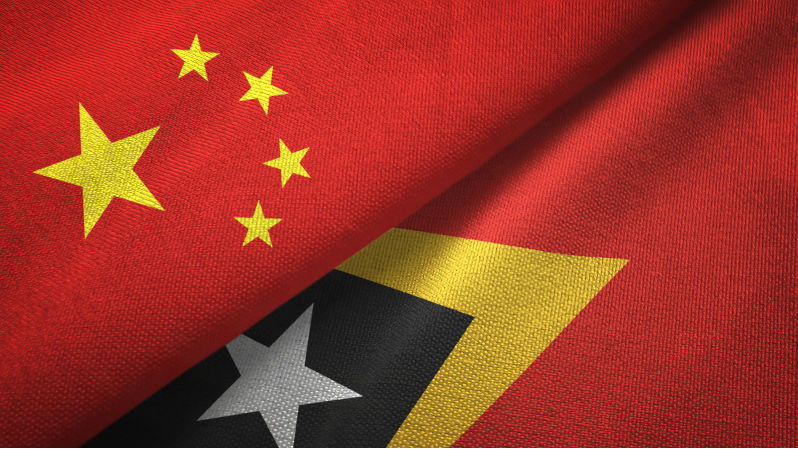Ramos-Horta visit to Beijing pushes against US pressure, omits Greater Sunrise
August 7, 2024
On 29 July, 2024, Dr José Ramos-Horta, President of the Democratic Republic of Timor-Leste met in Beijing with Chinese People’s Republic President Xi Jinping to upgrade the relationship between the two countries to “Comprehensive Strategic Partnership”. On the one hand Ramos Horta punctured Canberra fears of a Timor-Leste – China Security Agreement, but on the other, the Timorese leader firmly rejected US and Australian pressure about the status of Taiwan.
The glaring omission from the official communiqué by the two leaders was any commitment by China to assist with the development of the Greater Sunrise Gas Fields and its associated Tasi Mane onshore Liquid Natural Gas and petroleum installations on the south coast of Timor Leste. This project is the top priority of the Gusmão government, which needs huge financial support to get the project up. Woodside has opposed the processing of the gas in Timor-Leste.
The two leaders signed a Cooperation Plan on Jointly Promoting the Belt and Road Initiative, and cooperation documents on agriculture, civil air transport, digital economy, green development, infrastructure, implementation of China’s Global Development Initiative, radio and television, media and public culture.
This was the first ever visit by a Timor-Leste head of state to the People’s Republic of China.
Timor-Leste recently joined the World Trade Organisation (WTO) and joined with China to assert the central role of the WTO multilateral trade system and to oppose “decoupling” and trade protectionism, another push-back against US trade policies against China under both Trump and Biden.
In the official communique, Timor-Leste reiterated unequivocal support for the one-China principle, that the government of the People’s Republic of China is the sole lawful government representing the whole of China, and Taiwan is an inalienable part of the Chinese territory. Timor-Leste said it is opposed to any form of “Taiwan independence,” will not establish any form of diplomatic relationship or conduct any form of official contacts with Taiwan, and supports all the efforts of the Chinese government to realise national reunification. Timor-Leste also said that it firmly respects China’s position on issues related to the Uighur people in Xinjiang region and the Tibetan people in Xizang region.
The two leaders committed to make joint efforts to promote an equal and orderly multipolar world and a universally beneficial and inclusive economic globalisation, and advance the building of a community with a shared future for mankind - China’s alternative language to that of the US with its “rules-based international order”. President Ramos-Horta also spoke positively of China’s important role in promoting world peace and development.
They also agreed to enhance exchanges at all levels between the military and police forces, strengthen cooperation in such areas as personnel training, equipment technology, the conduct of joint exercises and training, police affairs and law enforcement.
There are already friendship province cooperation agreements between Hunan Province and Manatuto Municipality. They will move to create sister-city ties between Macao Special Administrative Region and Dili. These are longstanding people-to-people links from Portuguese colonial times. Similarly, Timor-Leste and China will implement decisions of the Forum for Economic and Trade Cooperation between China and Portuguese-speaking Countries (Macau). They also agreed that Timor-Leste has a key bridging role to play in fostering cooperation between China and other Portuguese speaking countries.
When Timor-Leste finally is accepted into the Association of South East Asian Nation (ASEAN), China will be able to assist it through the platforms of China-ASEAN cooperation and East Asia cooperation.
In another push back against US policies, China and Timor-Leste agreed to uphold the UN-centred international system, based on international law and international relations underpinned by the UN Charter.
They said that developed countries should fulfil their climate commitment to provide financial support and technology transfer to developing countries, and China promised relief for Timor-Leste in the event of climate disasters.
The Greater Sunrise Joint Venture (SJV) participants are the Timorese government through TIMOR GAP (56.56%), Operator Woodside Energy (33.44%), and Osaka Gas Australia (10.00%). In April this year, they awarded a contract for the Greater Sunrise Concept Study to Wood Australia Pty Ltd ( Wood PLC). The Study will consider the key issues for developing, processing, and marketing gas with a strong focus on delivery of gas to Timor-Leste for processing and LNG sales, or the alternative of delivery of the gas to Australia. The Study will evaluate which option provides the most meaningful benefit for the Timorese people, and will report by the end of 2024.

